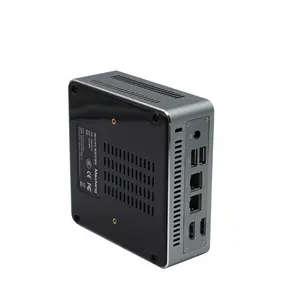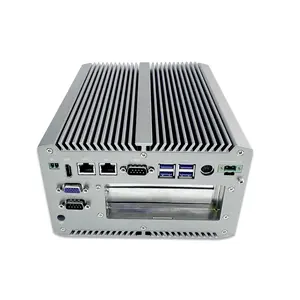Exploring Desktop Computer Cases
The desktop computer box, commonly referred to as a computer case or chassis, is a pivotal component in assembling personal and business computer systems. This enclosure houses the critical parts of a desktop computer, including the motherboard, central processing unit (CPU), memory, and storage devices. Its design is not just for aesthetics; it plays a crucial role in the protection and thermal management of the system's hardware.
Types and Features
There are various types of computer cases tailored to meet different user needs. From the compact mini-tower that fits snugly into small spaces to the full-sized tower designed for high-end gaming and professional workstations, each case offers unique features. Key attributes to consider include the case size, which dictates the motherboard form factor, the number of expansion slots, and the capacity for future upgrades. Additionally, the presence of tool-less design, cable management systems, and dust filters are significant for maintenance and longevity.
Material and Durability
The construction material of a desktop computer box is a major determinant of its durability and thermal performance. Most cases are built from metals like steel or aluminum, which provide a sturdy frame and excellent heat dissipation qualities. Some may also incorporate plastic or tempered glass panels for visual appeal. The choice of material affects not only the case's resilience against physical impacts but also its effectiveness in keeping the internal components cool.
Design and Cooling
Modern desktop computer cases are engineered with cooling in mind. Effective airflow is paramount to ensure that electronic components operate within safe temperature ranges. This is achieved through well-planned interior layouts that support multiple fan mounts, ventilation grills, and even provisions for liquid cooling systems. The design also often includes sound dampening materials to minimize operational noise, a consideration that can be crucial in quiet office environments or for users sensitive to sound.
Compatibility and Customization
When selecting a PC case, compatibility with other components is essential. The case should accommodate the specific size of the motherboard and have enough room for high-performance graphics cards and multiple storage drives. Customization options such as modular drive bays and adjustable mounting points allow users to tailor the internal space to their specific hardware requirements, ensuring that the case can adapt to various configurations.
Environmental Considerations
An often-overlooked aspect of computer chassis selection is the environmental impact. Cases designed with energy efficiency in mind not only contribute to lower electricity costs but also to a reduced carbon footprint. Features like power-saving modes and efficient airflow contribute to a greener operation, aligning with the growing global emphasis on sustainability.
Incorporating these considerations, Alibaba.com presents a diverse array of desktop computer boxes to cater to the nuanced needs of different users. By exploring the extensive selection, buyers can find the case that not only fits their system's requirements but also supports their performance and aesthetic preferences.














































 浙公网安备 33010002000092号
浙公网安备 33010002000092号 浙B2-20120091-4
浙B2-20120091-4